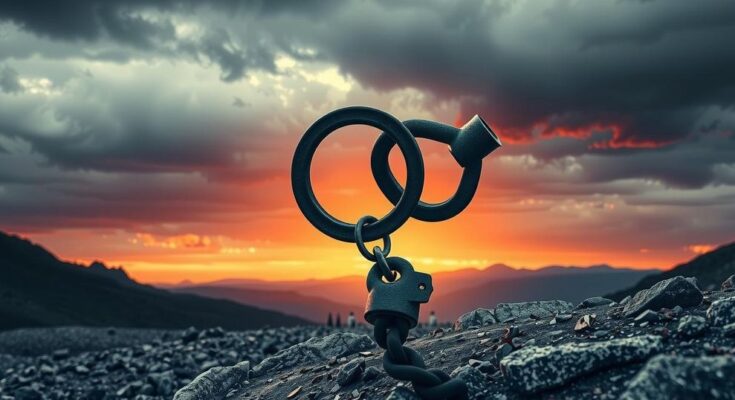Thirteen peacekeepers, including South Africans, Malawians, and a Uruguayan, were killed in clashes against M23 rebels in DR Congo. Violence escalates in Goma as the UN withdraws personnel and the international community calls for a ceasefire amidst rising diplomatic tensions and humanitarian crises affecting over 400,000 displaced individuals.
In the Democratic Republic of Congo (DRC), clashes between M23 rebels and peacekeeping forces have claimed the lives of thirteen soldiers, including nine South Africans, three Malawians, and one Uruguayan. The South African military reported that their troops were engaged in an effort to halt the rebel advance on Goma, a strategically significant city in eastern DRC. As violence escalates, the United Nations is evacuating non-essential personnel from Goma to ensure their safety, with calls for an urgent resolution to the conflict.
French President Emmanuel Macron has engaged with leaders from both DRC and Rwanda, urging for an immediate cessation of hostilities. The UN Security Council convened early to address the alarming situation, which has seen M23 militants call for Congolese troops in Goma to surrender to prevent further bloodshed. Diplomatic tensions are rising, particularly after the M23 killed a Congolese military governor visiting the frontline, and accusations of Rwandan support for M23 persist.
Violence has intensified significantly since the start of 2023, with M23 capturing large territories while more than 400,000 individuals have been displaced. Local leaders have reported over 200 civilian deaths in areas under M23 control, resulting in substantial pressure on healthcare facilities in Goma. Human Rights Watch and other entities have raised alarms regarding significant risks to civilians amid the ongoing conflict, blaming both government forces and the M23 for egregious human rights violations.
Martin Gordon, an Anglican bishop in Goma, expressed the urgent need for peace, stating that the fighting has persisted for far too long, and the civilians are desperate for resolution. Several nations, including the UK, France, Germany, and the US, have advised their citizens to leave Goma due to the escalating situation. The humanitarian crisis in the region is worsening, with the UN indicating that both the M23 and Rwanda may be complicit in exacerbating local instability.
The M23 group, formed in 2012, has historically claimed to represent the interests of the Tutsi population in DRC, yet critics allege that the group is largely utilized by Rwanda as a means to exploit the rich mineral resources of eastern DRC, which include gold, cobalt, and tantalum. The ongoing conflict continues to raise urgent concerns for international observers, with calls for accountability and peace negotiations intensifying alongside the violence.
The ongoing conflict in the Democratic Republic of Congo, particularly in the eastern provinces, has its roots in historical ethnic tensions and the aftermath of the Rwandan genocide. The M23 rebel group, emerging in 2012, has frequently engaged in armed confrontations with DRC’s government forces, claiming to protect the rights of the Tutsi minority. The region is also rich in minerals, drawing interest from various external actors, complicating the conflict further. The humanitarian implications are severe, with large numbers of civilians caught in the crossfire, leading to a significant displacement crisis, exacerbated by both rebel actions and military responses.
In summary, the recent violent confrontations between M23 rebels and international peacekeepers in the DRC have resulted in the tragic death of thirteen soldiers. As external calls for peace intensify and local humanitarian crises deepens, the situation remains precarious for both civilians and military personnel. The international community, including prominent leaders and organizations, continues to urge for dialogue and stability in a region that has suffered from decades of conflict and exploitation.
Original Source: www.bbc.com




